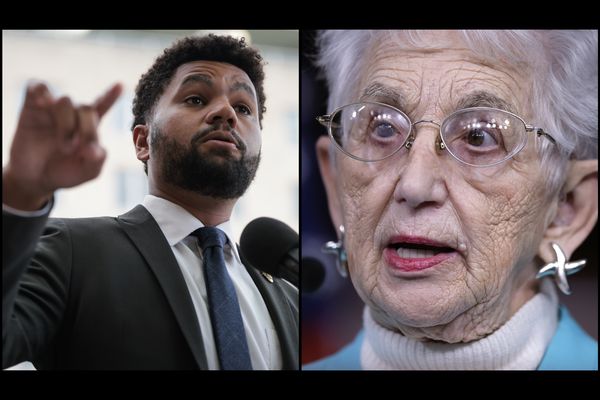
Police are trivialising stalking and letting victims down, watchdogs have warned, as figures show one in five women are targeted.
A major new report, launched in response to a super-complaint against police lodged two years ago by the anti-stalking charity Suzy Lamplugh Trust (SLT) on behalf of the National Stalking Consortium, found “clear evidence” that victims were being let down.
In their super-complaint, the groups warned some victims were being left at risk of being seriously hurt or killed as they struggled to have their cases taken seriously.
The 159-page police watchdog response published on Friday found police had “overtly minimalised or trivialised” stalking behaviours reported to them in 46 of the 470 stalking and breach of protective order cases they reviewed.
This included victims not being believed or taken seriously or feeling victim-blamed or shamed by officers.
One victim explained: “I was told keep collecting the evidence and then being told as I’m reporting stalking - continued stalking - ‘well he’s not actually done anything wrong yet, he’s not actually doing anything’ … which completes skews and twists how you think about what you’re reporting.”
The watchdogs found it “especially concerning” that in some cases they reviewed, police “had not identified risk of serious harm or homicide to a victim”.
It comes after official data from the Office for National Statistics showed one in five women and one in 11 men in England and Wales have been a victim of stalking.
The director of the Independent Office for Police Conduct (IOPC), the chief inspector of constabulary and the boss of the College of Policing jointly called on forces in England and Wales to take urgent action.
They made 29 recommendations to improve their response to the “intrusive” crime, which causes clear “psychological trauma” to victims.
They also called for an overhaul of “unclear” stalking legislation, which could include a review of sentencing or more cases heard at crown court.
Currently, 85 per cent of cases are tried at magistrates’ court with a six-month maximum sentence.
Other measures needed include simplifying routes to obtaining a Stalking Protection Order, to allow police to better protect victims while investigations are carried out.
The use of stalking protection orders (SPOs), introduced in 2020 to ban perpetrators from approaching their victims, was “worryingly low, the report found.
In a press conference on Friday, Chief Inspector of Constabulary Andy Cooke said it was “regrettable” that victims had not always been supported or taken seriously.
“It’s regrettable on the occasions that people have come forward and don’t feel that they’ve been protected,” he said.
“I must say, though, there are many, many instances where stalking victims have been pleased with the response of policing. But again, it’s not consistent, and that’s the key issue.
“Really, there needs to be a consistency of approach…legislation needs to be changed.” Urging all forces in the country to take up the 29 recommendations, he added: “Sadly, on too many occasions, yes, we are not seeing victims being properly protected, and we are not seeing victims getting that justice that they should rightly demand.”
Andy Marsh, from the College of Policing, said officers are hit with a “blizzard” of data when they try to investigate a pattern of stalking behaviour. But he hopes artificial intelligence can help officers trawl through evidence “seamlessly and instantaneously”.
“So what we will do is turn that blizzard of information…into our best asset, our best asset that will help them make a smarter decision to conduct an investigation, to record the right crime and to take the right protective measures for the victim that’s reporting it,” he added.
Emma Lingley-Clark, the SLT charity’s interim chief executive, hailed the findings as a “pivotal moment for police forces to demonstrate their commitment to improving the criminal justice experience and outcomes for victims of stalking”.
It is “not enough to just say we will do better, instead now we need to see a real commitment to preventing the numerous failures encountered by stalking victims”, she added.
London’s Victims Commissioner Claire Waxman said the report demonstrated the need for “urgent reform” so stalkers were brought to justice and victims were better protected. She called on the Government to overhaul legislation so there is a single offence which “recognises the severity and impact of this crime”.
Deputy Chief Constable Paul Mills, the National Police Chiefs’ Council (NPCC) lead on stalking, said: “We remain committed to doing everything possible to improve the policing response for victims of stalking.
“We are carefully working through the recommendations made for policing and will work closely with our partners across the criminal justice system and beyond to further improve and standardise the service victims receive.”
A Crown Prosecution Service (CPS) spokeswoman said: “We are continuing to work closely with police to build a picture of a suspect’s manipulative behaviour and actions to present a robust case in court while utilising protective orders to safeguard victims from repeat offending.”
Safeguarding Minister Jess Phillips said: “Behind the findings in this report are heart-breaking testimonies from victims. Stalking is an insidious crime that can leave survivors traumatised.
“It also sets out important recommendations for how the whole justice system can better tackle this awful crime. We are already actively considering these, looking at how we can work with the police to overhaul how we respond to this crime and put more perpetrators behind bars.
“We thank the Suzy Lamplugh Trust for this report and we will respond fully in due course.”







